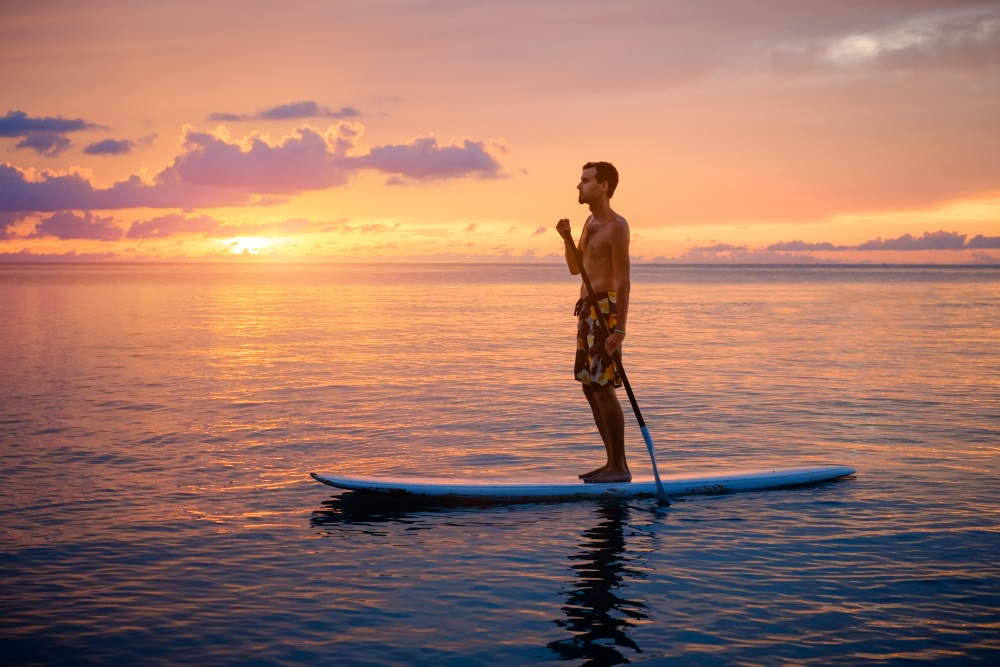How The Pandemic Has Driven Popularity In These Solo Sports


Perspective on Covid-19’s impact on Sports
LOCKED down at home, glued to our screens, many of us have spent the time dreaming of getting out more. And it turns out that as soon as we could, many of us were straight out into the great outdoors. In fact 2020 saw a surge in interest in a number of individual outdoor sports.
The lockdown induced cabin fever started a silly season across the world, with people around the world flocking in their droves to the coast and country, despite the ongoing threat of Covid-19. But the summer of 2020 also saw sales in skateboards, surfboards, roller blades and stand up paddleboards outstrip supply, with stocks running low at retailers around the world.
In fact, the take up of individual outdoor sports hit a peak after the first global lockdown, with cycling, fishing, hiking and even golf all seeing a huge growth in sales of equipment.
I must confess, I was one of them.
Skateboarding goes for the big time
I’m an old hand at skateboarding, having previously taken it up in my teens, and again in my mid 20s, only to abandon it for the demands of real life. However, here I was in my early 40s, locked down at home (like everyone else) pining for some activity that wasn’t just jogging. Wondering what sport I could take up to get me outdoors and not too close to other people, returning to skateboarding was an easy choice.
Released from lockdown with my new board, I was pretty sure I’d find all the local kids laughing at granddad on his skateboard trying to remember how to Ollie. But, as it turns out, I was just one of a number of ‘older’ gentlemen that had rediscovered their old hobby.
In fact, skateboarding was already seeing a boom before 2020, with its premier at the impending (and eventually postponed) Olympics raising the profile.
“Traditionally the skate community, especially when I was growing up, was quite cliquey and male dominated. But, even in the run up to 2020, we’ve seen a change in perception of the sport and a wider acceptance within the community which has seen people from all walks of life taking up skateboarding.”
said Camsell Downing, a qualified instructor for Tic Tac Skate School when I spoke to him
“The female skate community especially had been growing even before the pandemic, with female only skate sessions at skate parks and female skate retreats. And in fact, skateboarding has become less of a male, and specifically a teen male thing. We were already seeing more adults at skate parks, perhaps people who were getting back into the sport after a few years.”
With the popularity of skateboarding growing, even during the pandemic, Camsell has seen a change in both the adults and the kids hitting the streets.
“One thing I’ve noticed is that as skateboard coaching becomes a bigger thing, more and more kids are starting much younger. You seem to find more kids who are much more proficient on skateboards compared to when I was younger.”
Neil Ellis of Skateboarding GB says, “We’ve seen many skate parks across the country reporting big rises in the amount of people attending, and particularly older and female skateboarders.
“Nottingham’s Flo skatepark reported seeing around 40-45% female skaters during the pandemic, up from around 20%.
And it seems that this 20% change is the average.”
As Neil says, the pandemic caught them off guard.
“We were expecting growth with the added attention of the Olympics. But we were definitely surprised about the popularity during the pandemic. Skate shops were reporting their best sales ever in 20 years, levels not seen since the first Tony Hawks game came out (in 1999).”

This popularity has also been reflected in the growth of skate coaching, of which Skateboard GB provides the official framework.
“Demand for lessons has definitely grown, reflecting the growth of the sport, and we’ve been offering the official instructor course for about three years now. Currently there’s a waiting list of over 200 people waiting to become skate coaches which has definitely grown during 2020.”
I ask Neil why he thinks skateboarding has had such a good few years.
“It’s an easy sport to take up, it’s great fun and good exercise. And increasingly we’re seeing adults taking up the sport to play more with their own kids. And although the focus can sometimes be on doing tricks, it’s also quite nice for people just to cruise around and maybe try some simple ollies.”
There are also different types of skateboarding, with penny boards and longboards offering a less intimidating route into the sport.
Another factor that Camsell from Tic Tac sees, in the growth of skateboarding in particular, is the combination of both a physical and a creative outlet.
“The pandemic has definitely highlighted the need to have tools to cope with your own mental wellbeing. And I think for many people, the appeal of skateboarding is the creative side of it as well as the physical exercise and to release stress.”
Skateboarding too is an easy and accessible sport, needing just a piece of tarmac to get started. And with decent skateboards available from just over £50, the bar to entry is pretty low.
Paddle boarding stands up
Getting out on the water is often seen as a great way to soothe the mind and enjoy exercise. And SUP, or stand up paddle boarding, has made access to the water much more accessible for a wide range of people.
Stand up paddle boarding was already one of the world’s fastest-growing sports, and in the UK, with lockdown lifted, SUPing was cruising.
A stand up paddle board, or SUP, is normally a rigid inflatable board around nine or ten feet long. Although the spiritual roots of SUP are in surfing, the sport itself is actually less about harnessing the raw power of the waves, and more about the leisurely exploring of waterways on your board.
The appeal of SUP is that it is a relatively simple sport, with very little in the way of a learning curve, save for finding your balance. You can SUP on rivers, lakes, in the sea or even down your local canal.
And, of course, it’s an easy sport to maintain physical distancing.
As Andy Gratwick from the British Stand Up Paddle Board Association (BSUPA) says, “We’ve definitely seen a rise in the size of our association in 2020.
“In fact we had a sharp spike of new SUP schools and instructor training courses, with a 15% rise in new schools in 2020. Normally the figure runs around 5% per year. Shops also reported meteoric sales thanks to the combined good weather and post lockdown activity.”
SUP rental companies and schools are popping up all over the UK wherever there is water, from Aberdeen to Brighton or Cornwall. In fact, you don’t even need to be by the sea to enjoy stand up paddle boarding.

My first experience on a SUP was in Bath, where I went touring the River Avon with local adventure company Original Wild. Since then I’d explored by paddle board in a number of places around the world.
And in the summer of 2020, having relocated to Devon after several years in London, I decided to get back out on the water around my local area.
There is no question that paddle boards have come to rule the waves, with SUPs at Devon and Cornwall’s beaches during summer 2020 unquestionably more ubiquitous.
And there is a simple reason for that.
“It’s an easy sport to take up, very family friendly and you don’t have to be a super fit athlete to get into it. You can ride when it’s calm and flat, or you can challenge yourself and ride some big swell. And if you’re having fun in calm water you can pop your toddler on the front, or even take your dog”, says Andy from BSUPA.
“And as we’re an island, you’re never far from water to enjoy SUP”, he adds.
But as Andy points out, “The growth of SUP is only going to get bigger, but we should point out that it is still a water sport and people should take a basic competency lesson before heading out into the water”.
Getting outdoors in a pandemic
Keeping it rolling, you’re now also more likely to spot roller bladers and BMX bikers weaving through a town centre near you. If it’s a bit cool, or it’s something that might have been big in 1994, chances are it’s seeing a comeback. Of course, close contact or team sports like football or martial arts, as well as enclosed spaces like gyms have suffered during the covid-19 outbreak.
And, as various studies find links between health factors such as obesity and covid, our fitness falls under the microscope even more. So, with gyms closed and most people mindful of physical distancing, more of us are rethinking both our workout schedules and techniques.
Sports you can practice at home, or in your local area with minimal equipment have been big beneficiaries of the pandemic. From rock climbing, to roller skating and blading, to home workout programs, finding a way to release the combination of boredom and stress has become a crucial factor in getting through these strangest of times.
And although this isn’t the death knell for gyms perhaps, for many of us, the pandemic has served as a wake up call. You don’t necessarily need the gym for your fitness plans. If you’ve been thinking of taking up that obscure sport, or even rediscovering an old hobby, there’s no time like the present.
Last updated on May 11, 2021Have you subscribed to our Newsletter or Podcast? Listen to us on Apple Podcast and Spotify and follow us on Facebook, Instagram Twitter and YouTube.








